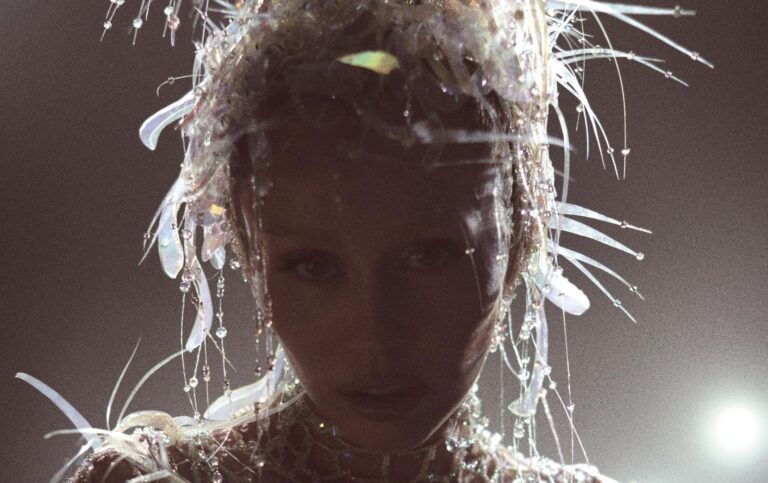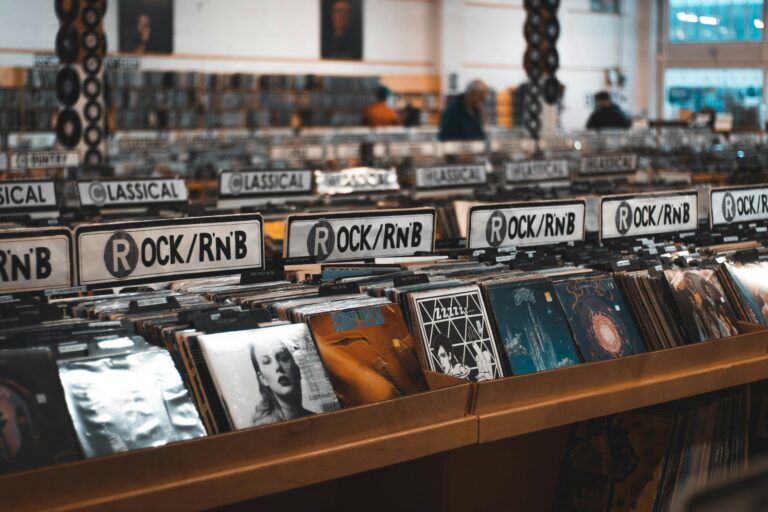Concerts in Crisis: Has Live Music Lost Its Appeal?

Is concert culture really ruined or is the media portraying it to be worse than ever? As an avid concertgoer myself, I have been well-versed in the music touring world for over a decade. But over the past few years, there have been some discrepancies in the entire experience of the run-up to and attending gigs.
Now more than ever before, it seems harder to snag tickets for events, with verified fan presales becoming increasingly popular, the likelihood of getting tickets has drastically dropped. It is understandable why the various presale types have been established – in order to minimise bots and resellers – but is it really as inclusive as we are led to believe? Many fans are not satisfied with the way that ticket availability has become an increasingly major problem with the different presale types.
If you were lucky enough to get tickets for The Eras Tour, count yourselves lucky as many swifties who signed up didn’t get the opportunity to get through to the Ticketmaster page. Only having the option of presale not only excludes new fans from the general concert experience but ruins chances for people planning to buy tickets for other people such as family members and friends, as they wouldn’t have been aware of the different presale codes. If there was a warning that a general sale wouldn’t be happening and the only chance to get tickets was signing up for a presale, it would have been much more accessible for the public to get their hands on tickets.
On the other hand, it is understandable that the Midnights presale was for fans that had preordered the album before its release, and this group of people were guaranteed to get a code (but not guaranteed tickets), giving fans a first opportunity to get their hands on tickets. The general sale was operated with a lottery system as to who received a code, but this way of following through with ticket sales is not always what it’s made out to be. Taylor Swift is not the only person to release tickets in this way, and she should not be blamed for this setup. But with hoards of Swifts signing up for access, logically, it seemed like the best way to carry out the ticket sales. It’s a time-proven issue that nobody can seem to learn, nor find a solution from.
Ticketmaster is not helping the matter, being the monopoly master in the game. The complex history of controversies with the ticketing site is ever-growing with its platinum pricing structure and high fees. The mounting dislike for the site and its other entities such as Live Nation has been a major inconvenience for Ticketmaster, despite owning over 70% of the market for ticketing and live events. However, the site doesn’t have to improve because it doesn’t need to with the power the company yields. There aren’t many competitors in the primary ticketing market that hold the power to outdo the corporation.
Along with this, the average pricing for a general admission ticket has risen drastically in comparison to just a few years ago, even when taking the UK’s exorbitant inflation rate into account. This affects not only the artists, venue and staff supporting the concerts but also the average ticket buyer, as some tickets as of late are seemingly unattainable to the average fan. For example, if someone had set aside a budget for a certain tour based on previous concerts they had been to by the same artist, unfortunately, it would likely go one of two ways. Either, that either they would not be able to attend due to the extortionate expense, or they would have to compromise on another aspect of their financial life depending on their priorities. This then puts the more well-off, casual listeners in a better position.
This also ties into the resale market, allowing fans to buy and resell unwanted tickets to allow other fans the opportunity to get their hands on sold-out tickets. This isn’t a major problem until you delve into the world of reselling on secondary sites such as Viagogo for example – notorious for the extortionate upsells and inauthentic tickets. The bots and scammers are upping their game with the evolution of fraud prevention, selling on sites where people desperate enough for tickets are willing to take their chances.
X (formerly Twitter) is also a common ground for people searching for tickets, trusting that their mutuals will retweet their search for tickets and expand the search field in hopes that a like-minded fan is selling tickets. The bots and fraudsters on the site have no hesitation in putting themselves forward, going as far as manipulating and photoshopping their fake tickets to create false proofs. Once again, Ticketmaster is relied upon for the legitimacy of resale tickets with its in-app resale programme, which can only be used if the original tickets were purchased on the site. But other sites like Twickets, which is one of the more ethical ticketing sites for resale, only allow tickets to be sold at face value or less, with a money-back guarantee if the tickets are invalid.
The superiority complex that many fans have acquired post-pandemic is concerning and an ill reflection of fangirls, once again feeding the media a narrative that is not an accurate representation of the majority of concertgoers. Many fans have been using their online platforms to showcase their every move: how long they queued, the number system set up by other fans along in line, with various aspects of glamorising the pre-gig experience.
In an ideal world, people would start queuing the day of, but recently, the increasing number of people outside or adjacent to the venue well in advance has been shocking. The number system put in place by fans is a well-thought-out and well-meaning idea, but when people have been queuing for days and the line leaders are being rude and demanding, it’s not surprising that there are so many disagreements. Don’t lie – you’ve seen the TikTok’s. The exclusion or dismissal of fans with disabilities who are entitled to have their designated place at concerts has also been outrageous, amongst not only other fans but the security in and around the venues too.
Security is a crucial thing to ensure that not only the artist but also the fans are safely enjoying themselves, however, with the increasing number of fans camping out for concert days, sometimes even weeks in advance to secure a barricade position, the pressure for the venues to provide that safety has gone haywire.
Security teams have to be hired for longer as fans begin queuing earlier, which also means that an increased security team is more than likely to be working extended hours. If you have been to a concert in the UK, you will have most likely noticed that the security almost always wear yellow or purple (occasionally grey) shirts/jackets, working for Showsec: the leading provider of event security and crowd management across the UK. They might be the leading provider, however, many fans have had negative experiences with security staff being rude, refusing help with fans in need of assistance, teasing fans with whether to give them water, and general rudeness in general to individuals who have paid to attend events. Many venues have a limit on how many pit or balcony tickets can be sold, and it’s for a good reason.
But despite this, there have been so many fan experiences in recent years, of those being let into an already very crowded area without a ticket for that section, or letting fans without tickets into the venue in general. After the unfortunate event at O2 Academy, Brixton in 2022, you’d think that it would be enough for them to learn when enough is enough.
This is not to say that all security workers are not doing their job adequately. There have been so many positive interactions with Showsec staff being friendly and getting along with fans at the gigs and going above and beyond to create the perfect fan experience, but there has just been an increased number of negative experiences perpetuating online post-pandemic.
Between the ever-increasing cost of tickets, changing fan etiquette and overworked security, it seems more and more like concert going is an evolving situation that unfortunately, will not find its way back to how we recall it. Whether this change is for the best or not, it’s up to you to decide.







